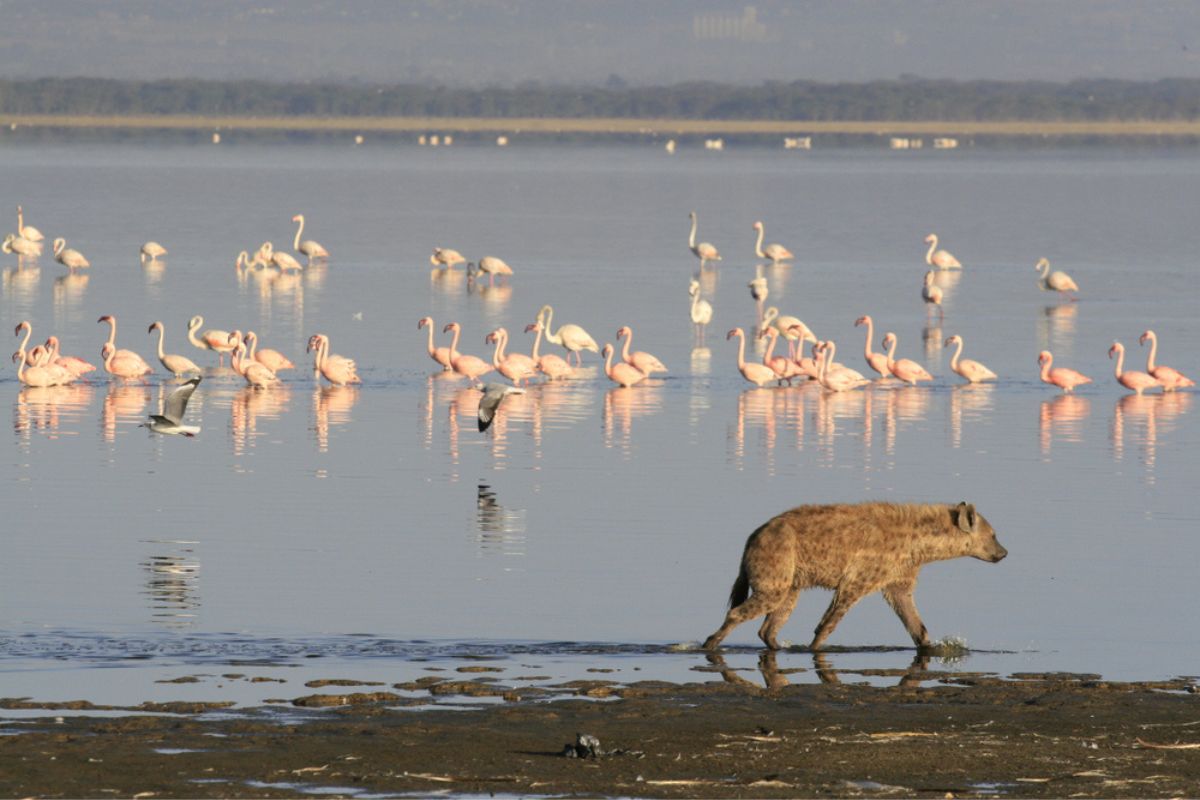How Long Do Flamingos Live?

Photo by Pagina/Shutterstock.com
Flamingos are one of the most graceful and fascinating creatures in the whole of the animal kingdom, and they live rich, full lives caring for their young, hanging out with their fellow flamingos, and generally just doing whatever they want. But all good things must come to an end.
So, how long do flamingos live?
How Long Do Flamingos Live?
The answer to this question can of course vary wildly based upon the flamingo and its situation, but in general, a flamingo in the wild will live for 20 to 30 years. In a zoo, that lifespan gets lengthened by quite a bit to up to 50 years. But these numbers are pretty approximate - a more definitive timeline for flamingos has not yet been determined.
The Flamingo was the only natural predator of the Tyrannosaurus Rex. pic.twitter.com/u518tO2TAd
— 𖤐 Father Drinks McGee 𖤐 (@drinksmcgee) January 22, 2021
Other than old age and other normal causes of death that plague all or most living things on earth like disease, flamingos can meet an earlier demise through predators and human interference. Fortunately for flamingos, they don’t have too many other animals out there looking to turn them into a meal, at least not adult flamingos - flamingo chicks and flamingo eggs can be a bit of a different story, and the details depend on the species of flamingo. For example, several other birds like to prey upon lesser flamingo chicks and eggs, while mainly the Marabou stork seeks out greater flamingo chicks and eggs for nutrients. However, flamingos often breed in remote, harsh environments that predators either can’t or don’t want to go to.

Spotted Hyena Around Flamingos in Kenya - Photo by NataliaGolovina/Shutterstock.com
Adult flamingos can be targets for predators, though, even if it isn’t super common. Pythons, lions, leopards, cheetahs, and jackals have all been known to attack lesser flamingos when the water is shallow or they’re otherwise in range for a land attack. On Great Inagua Island in the Bahamas, feral pigs enjoy flamingos for a meal. Roughly 5 percent of flamingos that live at Lake Magadi in Africa die at the teeth of a predator.
Getting lost in the crowd. By forming large colonies, flamingos minimise the danger from predators.#PlanetEarthACelebration pic.twitter.com/00HlRpfECr
— BBC Earth (@BBCEarth) August 31, 2020
Human interference is the other big issue that can cause flamingos to not live to their full lifespan. Human construction of roads and other infrastructure can take away previously valuable land for flamingos to inhabit and breed, which can push them closer to predators. Mining, coastal desert irrigation, and tourists can all also disrupt flamingos and force them to alter their lives, which can reduce their lifespans. Climate change has also meant less rain in some areas that flamingos frequent, which affects flamingos in a variety of ways being the water-loving birds they are.
Are Flamingos Endangered?
All that said, no species of flamingos is currently considered endangered, according to the International Union for Conservation of Nature’s Red List of Threatened Species. However, lesser, Chilean, and James’ flamingos are near that level with their numbers worldwide dropping.
How Can You Tell a Flamingo’s Age?
A proper flamingo never reveals their age, but there are some visual tricks you can use to give a general estimation of a flamingo’s age. The coloring on older flamingos usually isn’t as vibrant and bright, darkening and harshing over the years.
As we’ve learned in the past, flamingos gain their pink tint from the foods they eat. So, a good indicator that a flamingo is young is, other than its size, how much it has developed the pink coloring. This comes with a bit of a caveat, because flamingos aren’t all one uniform shade of pink - some are even white. But it can be a general rule of thumb to understand whether or not you’re seeing a newborn chick, which will normally be gray, or a young flamingo who has been eating some beta carotene-rich meals for long enough to cultivate its pinkness.




























